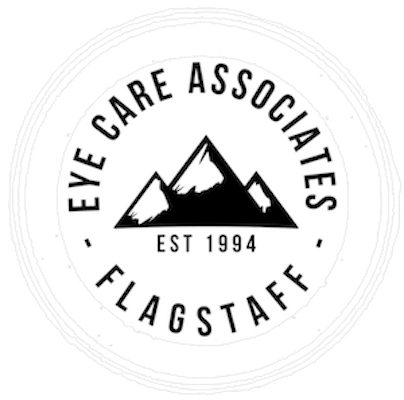
At Eye Care Associates in Flagstaff, we understand the pressure to cut back on expenses right now. Grocery prices are rising, gas costs more, and healthcare—like many essentials—can feel like just another bill. But when it comes to your eyes, delaying care could cost more in the long run, both financially and medically.
A patient once told us they skipped their annual eye exam to save money. Months later, they noticed subtle vision changes and occasional headaches. What started as a small concern turned out to be early signs of glaucoma—caught just in time. Had they waited longer, their treatment options would’ve been more limited, and their costs significantly higher.
This real-life scenario highlights a truth we often share: Your vision is one of your most valuable assets, and protecting it doesn't have to drain your wallet.
Why Skipping Eye Exams Is Risky
Even if your vision seems fine, annual eye exams do more than just check for glasses or contact lens prescriptions. They help detect:
- Silent conditions like glaucoma or macular degeneration
- Early signs of diabetes or high blood pressure
- Changes in eye pressure or retinal health
These issues often start without symptoms and can progress quietly. Catching them early means simpler, more affordable treatment—and better long-term outcomes.
How Eye Exams Save You Money Over Time
Think of regular eye exams like routine maintenance for your car. Small, early repairs are far cheaper than a full engine replacement. Similarly, an early diagnosis might require only minor adjustments, while advanced eye conditions could need surgery, ongoing medication, or permanent vision aids.
In fact, some vision problems, if left untreated, can lead to irreversible vision loss—which affects your independence, ability to work, and overall quality of life. That’s a cost no one wants to bear.
Affordable Ways to Prioritize Your Eye Health
We believe that quality care should be accessible. Here are smart strategies to stay on top of your eye health—even on a budget:
1. Use Your Vision Insurance Benefits
If you have vision insurance through your employer or an individual plan, make sure to use it annually. Many policies cover a full eye exam and contribute toward glasses or contacts.
2. Take Advantage of HSA or FSA Funds
Health Savings Accounts (HSAs) and Flexible Spending Accounts (FSAs) can be used to pay for eye exams, glasses, contacts, and other vision-related expenses—using pre-tax dollars.
3. Prevent Bigger Costs Later
A simple, affordable eye exam today can prevent complex and expensive treatment down the line. Prevention really is the best (and cheapest) medicine.
Prioritize Your Vision—Without the Financial Strain
Your vision is too valuable to overlook—even when you're watching every dollar. At Eye Care Associates, we’re committed to making quality eye care accessible, affordable, and personalized to your needs. If it’s been a while since your last exam, now is the perfect time to prioritize your health without the financial stress. Call us to schedule your eye exam or ask about our payment options—because seeing clearly shouldn’t come at a high cost.


The Office is open from 8am-5pm Monday-Friday.
The Optical Department is open from 9am-5pm Monday-Friday.